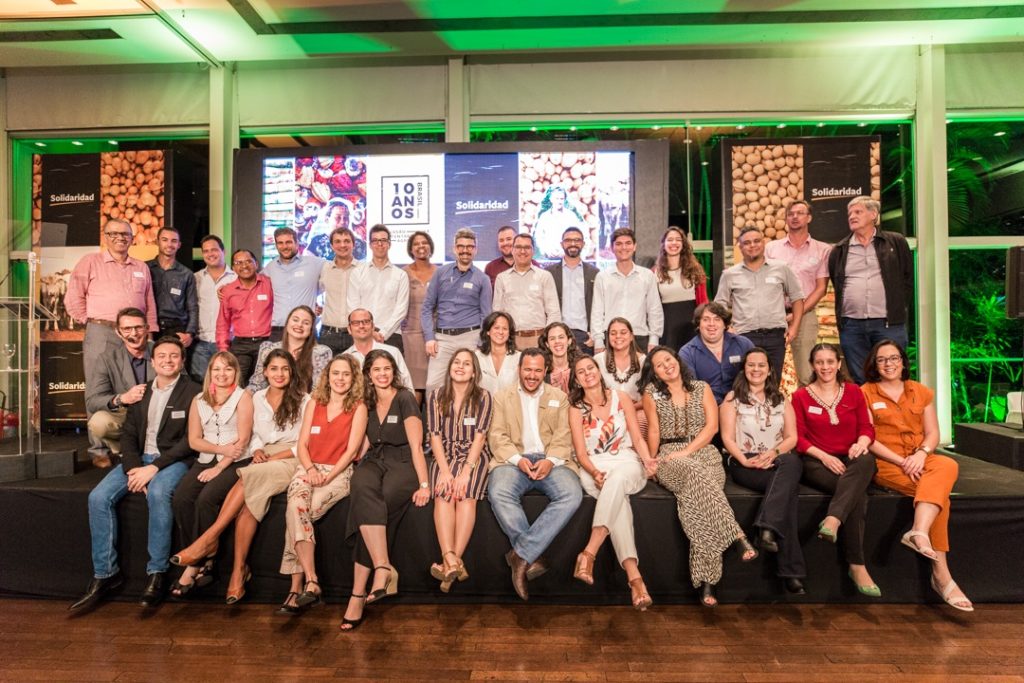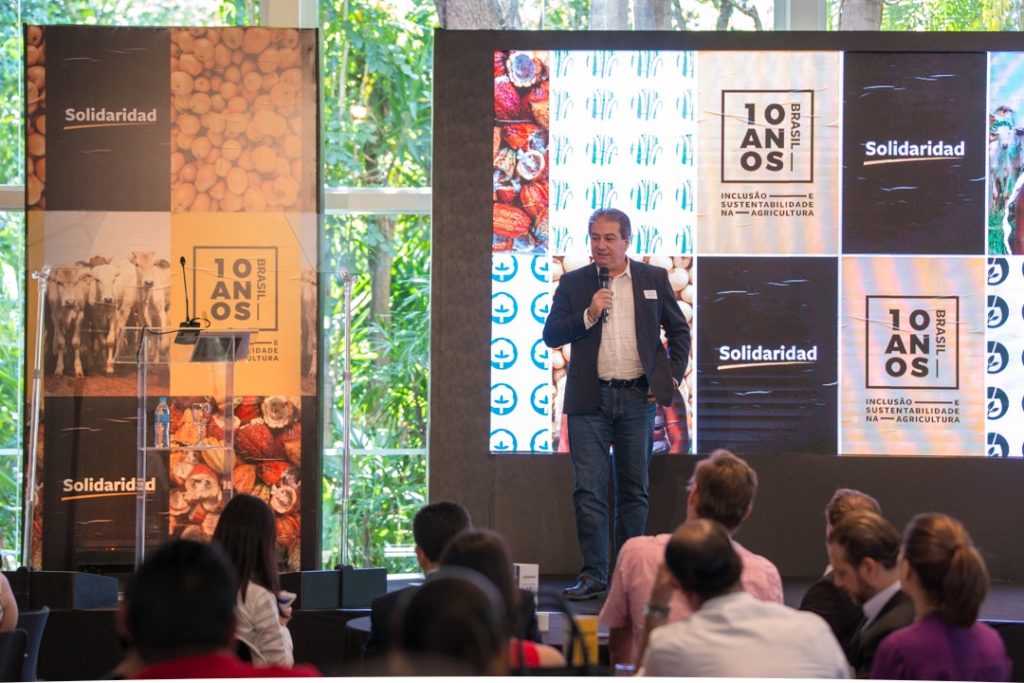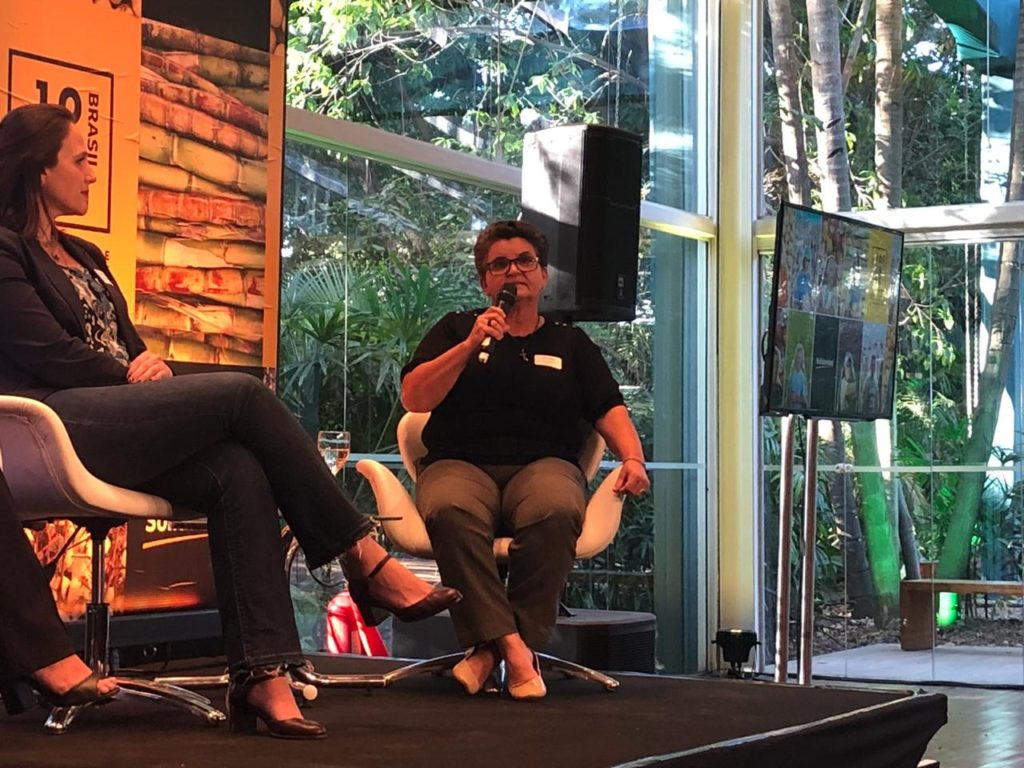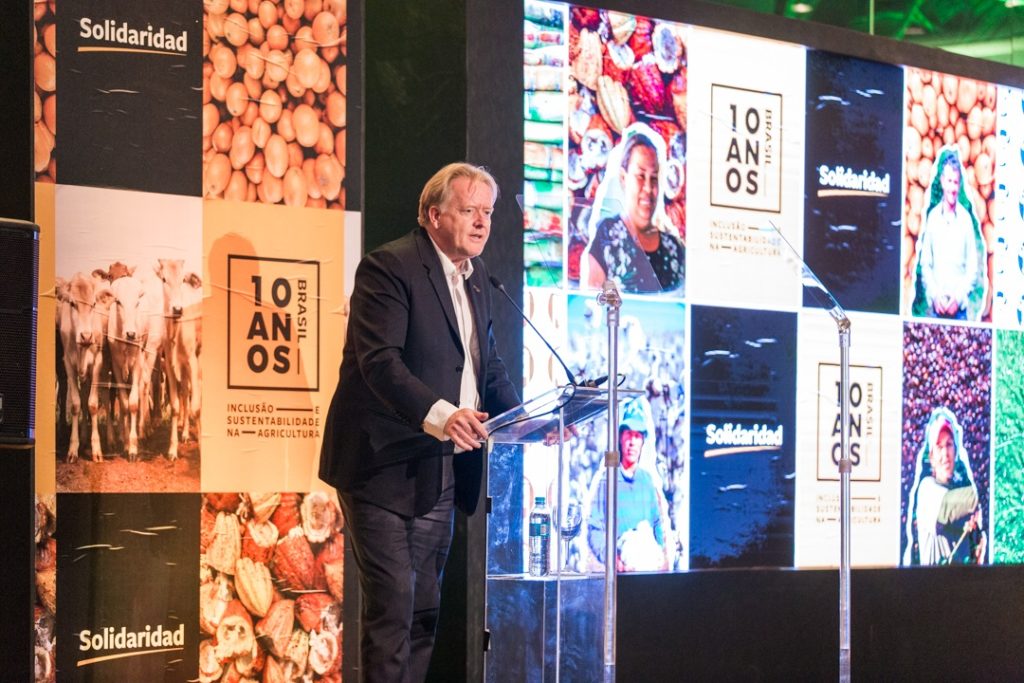Solidaridad brought together over 150 guests, including partners and leaders from agribusiness and civil society, in São Paulo in October to celebrate its tenth anniversary– and to reflect on the challenges to achieving an inclusive and sustainable agriculture sector in Brazil.

Brazil must remain a sustainability leader
Keynote speaker at the event, Brazilian Agribusiness Association CEO and former RSPO Director Marcello Brito, was quick to point out the need to recover the country’s environmental leadership to maintain the competitiveness of its economy. Brito is also the CEO of palm oil producer Agropalma, which has been RSPO-certified since 2012 and owns over 64,000 hectares of natural forest reserves in Brazil.
“In the last 50 years, Brazil has created 50 million hectares of agricultural land, and today it contributes to feeding 1.2 billion people outside Brazil,” Brito began his speech. “But the agricultural technologies that were available 50 years ago did not take into account sustainable development,” he said, referring to public incentives for unregulated and unplanned farming in the Amazon region decades ago.

For Brito, this policy was decisive in transforming the Amazon into one of the most economically unequal regions of the country. He went on to analyze the decline of Brazil’s public image because of the illegal fires in the Amazon this year. “Brazil started to push more sustainable development in 1992. But this year there were more than 220 million negative quotes on Brazil online in August alone.”
He believes the current environmental conflict in Brazil will have real consequences for the economy of the country. “It will take ten to 15 years to rebuild what we destroyed recently. But we will achieve it because the private sector and social and environmental organizations are working together.”
It will take ten to 15 years to rebuild what we destroyed recently. But we will achieve it because we are working together” – Marcello Brito, Agropalma and the Brazilian Agribusiness Association
Why tech inclusivity matters
Brito believes technological inclusion is both the challenge and the solution to inclusive and sustainable development. “The big producers and associations have immediate access to the latest technologies, but smallholders don’t,” he declared.
In his opinion, the private sector and the government have a role in bridging the technology gap by encouraging smallholders to form associations. “We must transform development into an inclusive process of income generation and the reduction of economic and social differences,” Brito concluded.
Beatriz Domeniconi of Raízen also spoke at the anniversary event. Raízen, which is the world’s biggest producer of ethanol, is one of Solidaridad’s oldest partners in Brazil and has supported Solidaridad’s development of digital technologies for continual improvement since its arrival in the country. “People talk about sustainability as something huge and intangible,” she said. “But in reality, it is closely linked to providing technical assistance in the field.”

Keylah Borges from the Cooperativa de Reflorestamento e Bioenergia da Amazônia (Coopercau), added that to preserve the Amazon, “it will be necessary to work on the formalization of land tenure and to provide family farmers with technical assistance.”
At the event, Solidaridad launched a digital platform for apps which enhance knowledge transfer from agricultural technicians to farmers. Its objective is to generate information quickly and accurately to help farmers make better decisions. “Working in family farming means working with large numbers of farmers,” said Pieter Sijbrandij, senior programme manager at Solidaridad. “We decided to automate assistance in order to achieve greater outreach.”

Jeroen Douglas, Solidaridad’s executive director, gave the event’s closing speech. “The image of Brazil in Europe is far from the reality,” he said. “Brazil has some of the best forest conservation laws in the world and, regardless of the current situation, we know that the country has the capacity to lead its agriculture in a responsible way.”
Fun fact
Green Initiative will offset the greenhouse gas emissions of the event, including the transfers of all attendees. The emissions will be compensated by planting 67 native Amazonian trees at the Doña Francisca cocoa plantation in the northeastern state of Pará.
